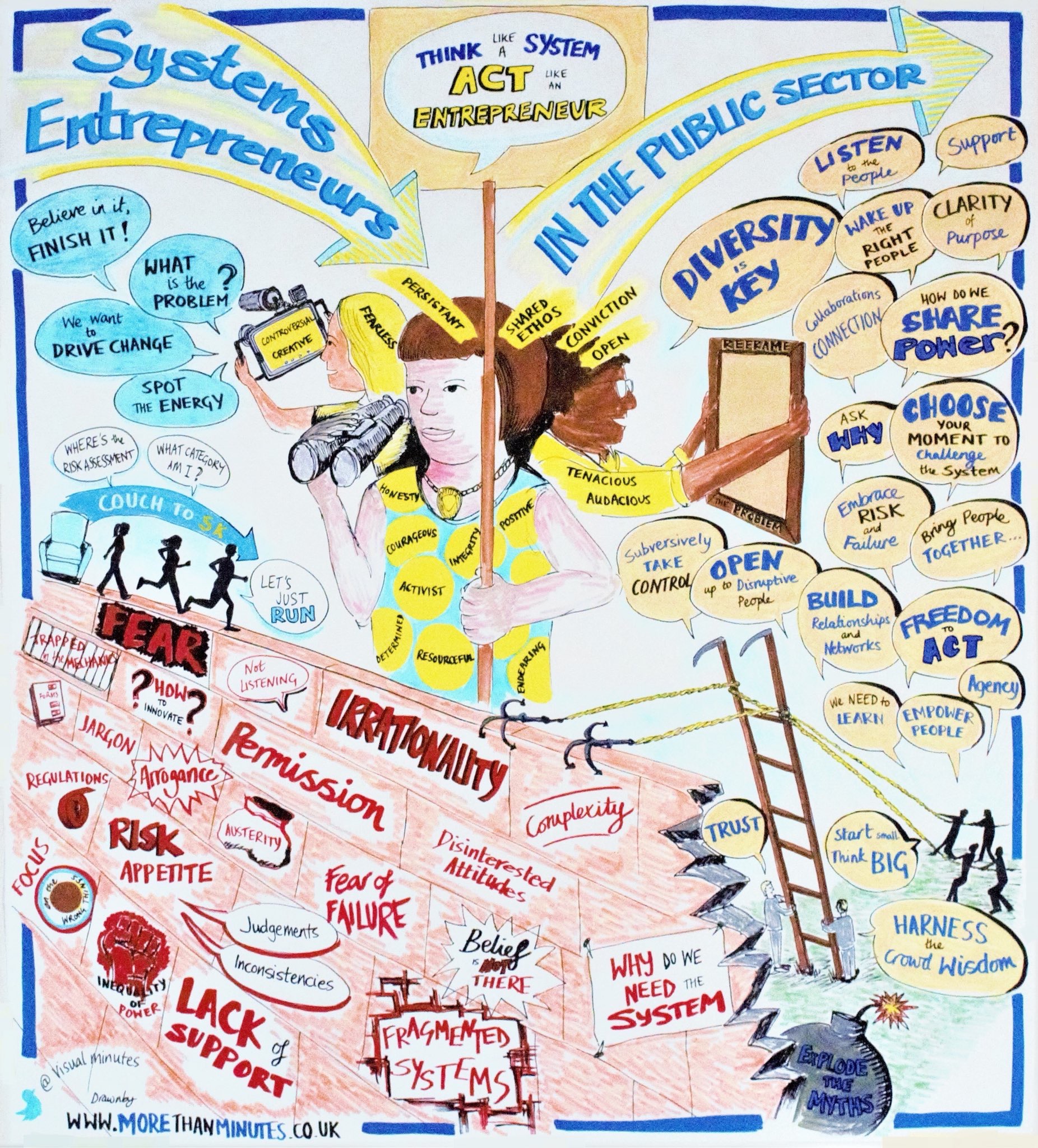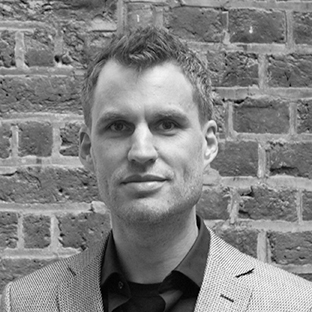The disruptive innovation spilling out of Silicon Valley and other hotbeds of tech start-ups can captivate our imagination. For those trying to make change happen in their own communities and organisations, for those seeking to stimulate economic growth in new and emerging fields, and for those trying to use tech to change the way things are currently done, there can be the promise of salvation in a start up. But moving fast and breaking things is not an option for those charged with being guardians of public money, who are working with some of the most vulnerable in society, or who are working on complex, intractable problems.
"The story of innovation", Hannah Shank writes, "is typically told as one of rule breakers, stay-up-all-nighters, people who are sharper and shinier than everyone else – whiz kids. But in reality, innovation, particularly in government, rarely relies upon a whiz kid. The real change makers aren’t 24-year-old male engineers parachuted in from Silicon Valley, but often a diverse range of people who have worked in or around government for years, who are invested in their communities, or who simply like intractable problems”.
A long-held caricature of the state as a slow, lumbering bureaucratic machine suggests that it is incapable of innovation, of moving fast, of being responsive to changing demand and changing circumstances. Yet at its best the public sector is a force for good, taking action to improve the quality of life for people and our communities up and down the country. National and local government spends over £250bn per year on providing services, fixing problems or shaping places; some of this spend inevitably drives innovation and innovative solutions to problems. But the extent to which government commissioning and procurement can actually drive innovative solutions to problems remains a fundamental question, a question that formed the focus of a recent RSA Lab inquiry.
Understanding Problems
Mechanisms and approaches are required that enable those seeking to tackle a problem to answer a simple question: how can I procure what I don’t know exists? We currently expect problem owners to also be solution owners, guided on their journey by the procurement process owners, ensuring compliance. Yet a more effective approach requires genuine collaboration around understanding the problem and creating the solutions, with all involved being agnostic about what a potential solution might look like. This does not have to be an off-the-shelf solution by a large provider. Rather, it could be a small start-up, a university spin-out, a backroom inventor. There are many and varied people with the skills and ideas to - individually or collectively - help solve problems but without the financial accounts or track record of success to satisfy those who prioritise risk management over innovation. What happens, though, when the process owner has to open up that process? When compliance meets crowdsourcing?
Finding Solutions
We recognise that the skillset and mindset of those people who are working in these new ways to solve problems is crucial, something we explored at a recent round-table in conjunction with the Hestletine Institute in Liverpool. The skillset of the Public Entrepreneur is one of the broker, collaborator, reframer of problems, champion of what works, not settling for the status quo wherever better is possible. They have a flexible, problem-solving mindset, finding ways to overcome barriers to change - what we term the ’system immune response’ - the reasons why new ideas and innovations don't 'land' in particular contexts. They also display what Carol Dwek calls a 'growth mindset, creating a 'safe fail' environment and learning from what doesn't work. We captured this in the visualisation below:

This is not disruptive tech at work; this is work done by people who are determined in seeing problems within their wider system context and experimental in their approach to solving the problem. They are neither beholden to the past nor constrained by what they don't know. In pursuit of solutions to society's problems they leverage a range of ideas and perspectives.
The public entrepreneur* at work
Public entrepreneurs can be found across the public sector. Often they are a lone voice within service teams, seeking better ways of doing things. Understanding the mechanisms through which problems can be addressed, they are able to flexibly deploy the appropriate tool at the best time. Through this inquiry we encountered many - from Sutton to Belfast, from Edinburgh to Dudley. Public entrepreneurs are those who are closest to the problem, overseeing service delivery and clean-up operations, providing high quality school places, reforming social care, and managing crises like cybercrime or floods. They have what Nicholas Naseem Taleb calls ‘skin in the game’ – living the highs when things work and the lows when they don't. Actively working through their own endeavours to make change happen, the Public Entrepreneur lifts old systems onto their shoulders to create the space in which new practice can emerge and take root. This is the “practitioner burden” that must be borne – a tough, emotional and exhausting role but, at its best, a worthwhile one.
Move fast and fix things
In the RSA Lab report we’ll be publishing next week, we call those working in this way within our public services 'Public Entrepreneurs'. They display the skillset to develop a deep understanding of the problem under consideration, in all its complexity, and the entrepreneurial mindset to tackle the problem by spotting and taking the right opportunity at the right time. At the RSA we call this the need to 'think like a system and act like an entrepreneur’. In our report we identify how these Public Entrepreneurs are moving fast and fixing things. We'd love to hear from you if this describes what you are trying to do - please get in touch with us.
Download the report: Move fast and fix things: How to be a public entrepreneur (PDF, 2.5 MB)
Explore our first report: From Design Thinking to Systems Change
"Transforming Together", looking at innovation in public sector partnerships, is available here.
*We clearly stand on the shoulders of giants in using the term 'public entrepreneur'; in the literature it is applied variously to the people and behaviours of those working within the wider public sector. We acknowledge this in our 'Public Entrepreneur' report. For those with a more academic interest we refer you to Peter Klein's 2010 paper 'Toward a theory of public entrepreneurship'.
To tell us your story, please email Ian Burbidge or Luke Timmons


Join the discussion
Comments
Please login to post a comment or reply
Don't have an account? Click here to register.
It sound like what we were trying to do as a social business. Our founder died doing it for those in greatest need. I shared his story http://www.managementexchange.com/story/re-imagining-capitalism-new-bottom-line